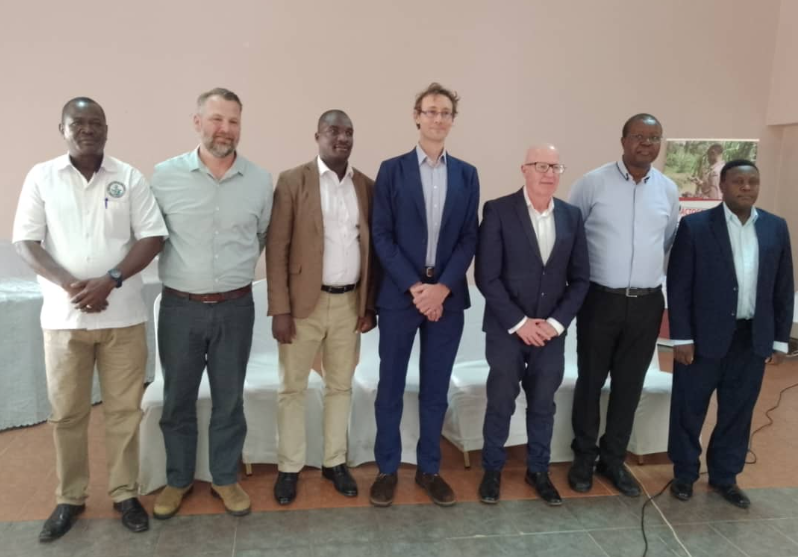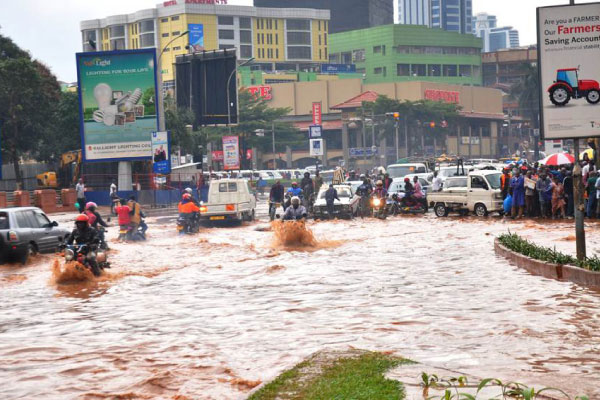Urban poor to benefit from locally made weather system

Hugh King, Private Sector Climate Change Adviser at the British High Commission Kampala (centre), Mark Harvey, CEO Resurgecy (3rd right), and UMNA manager for networks Julius Kiprop (left), with other climate change experts during the launch of the DARAJA East Africa Scale Up Programme in Kampala on June 2. PHOTO/TONNY MUSANI
What you need to know:
- Ms Catherine Nimusiima, an official from Actogether, a non-governmental organisation, implementing the DARAJA project in Bwaise, a Kampala suburb, said the vulnerable people have been affected by floods and too much heat.
Vulnerable communities in six East and Greater Horn of Africa cities are set to benefit from a locally made weather warning system.
DARAJA, which means ‘bridge’ in Swahili, was launched during a symposium in Kampala at the weekend.
DARAJA aims to improve weather and climate information services (WCIS), including issuing early warnings of extreme weather to urban users, with a particular focus on vulnerable communities based in informal settlements.
Ms Catherine Nimusiima, an official from Actogether, a non-governmental organisation, implementing the DARAJA project in Bwaise, a Kampala suburb, said the vulnerable people have been affected by floods and too much heat.
“DARAJA is a bridge of information. Bwaise is flood-prone area because it receives a lot of water from the other hills of Kampala. We are extending timely information in a user-friendly way,” she said.
The project is being extended to more than 3,500 people in the Bwaise.
Mr Julius Kiprop, the manager of networks operations at Uganda National Meteorological Authority (UNMA), who represented the authority’s executive director, said they are proud that the project targets vulnerable people in slums or informal settlements.
“UNMA will offer timely information, which is accurate. We should also work with the attitude to the vulnerable people. The most disability in life is the bad attitude,” he said.
Mr Kiprop advised the DARAJA technical team to disseminate information using local languages such as Luganda, Lusoga and Swahili.
“Develop a daily template for sending information in SMS. Also, use informal approaches, for example, flags to signal information. A green flag can represent peaceful existence, orange for warning and Red for danger,” he said.
UNMA is one of the government agencies working closely with the DARAJA initiative. Mr Isaac Mugume, the director of forecasting services at UNMA, said: “UNMA forecasters are ready to work with the new partners in the city and the region assembling under DARAJA to provide the best possible forecast and early warning service to our capital’s residents.’’
The East Africa DARAJA programme has been developed and financed through a new partnership with the UK AID FDCO Met Office under the WISER Africa programme.
Mr John Mungai, the regional East Africa adviser for the Met Office, said: “DARAJA is built on the twin pillar of the co-production principles of WISER and the pioneering climate and forecasting science of the Met Office.’’
DARAJA has originally piloted in Nairobi and Dar-es-salaam cities, reaching 982,000 residents and achieving strong results.




